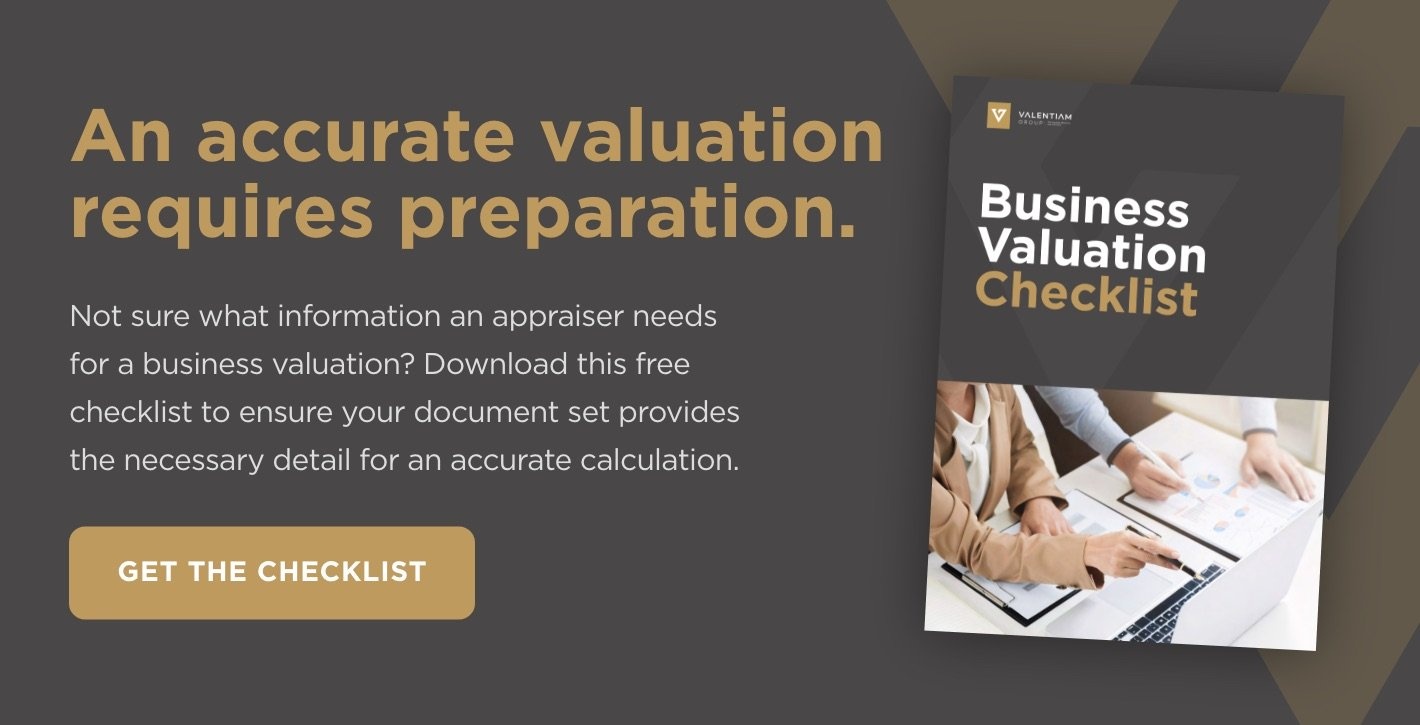What Is Portfolio Valuation?
Posted by Valentiam Group on July 30, 2020

Portfolio valuation is a growing part of valuation practice, and independent, third-party portfolio valuation services are being used increasingly by private equity funds, hedge funds, and other institutional money managers. There are several reasons for the increasing use of outside appraisals.
In this article, we’ll focus on the what, who, why, and how of portfolio valuation: What is it? Who needs portfolio valuation services? Why is the use of these services on the rise? How is a portfolio valued?
What is portfolio valuation?
An investment portfolio represents the total assets owned by a private equity, venture capital, or hedge fund or other institutional investor. Portfolio assets may be in the form of securities (such as stocks and bonds), or include businesses, real property, or other illiquid assets. A portfolio valuation, meaning: establishing the value of each asset owned by the investment fund or entity, provides a total asset value for all investment holdings—both liquid and illiquid.
Download our free Business Valuation Checklist to learn about the information needed to calculate an accurate, comprehensive valuation of businesses for portfolio valuation.
Who needs portfolio valuation services?
Periodic portfolio valuation is done to determine and report illiquid investment performance, which is often required for financial reporting and tax compliance, and also affects the investment manager’s compensation. Private equity funds, hedge funds, venture capital funds, and institutional asset managers (such as pension fund managers) are increasingly seeking independent portfolio valuation services from professionals with expertise in valuing illiquid assets like businesses and securities.
Why is the use of third party valuation services on the rise?
Private investment entities often own a variety of securities, businesses, and other property, and because they are private—not publicly traded—there are no publicly traded stocks or other market values to establish the market value of all holdings. Like other private entities, the finances of private and institutional investors tend to be opaque. Evaluation of these entities’ investment holdings by an independent third party provides more transparency into the value of the assets they hold.
An independent portfolio valuation ensures that assets have been valued according to the policies and laws governing valuations. It also ensures that valuations are conducted in compliance with IRS guidelines, to prevent underreporting of the values on which taxes are based.
When assets are liquid and publicly traded, the task is simple: The market values of assets (stocks and bonds) can be looked up and added together. But when illiquid assets such as real and personal property—businesses, land, buildings, machinery, and equipment—comprise part or all of the assets, it becomes much more difficult to establish value, because there often isn’t a market to determine the price. This makes the value of the non-securities holdings of private investment entities doubly opaque. ASC 820 requires that companies use actual market data when available, whether they are using the income, market, or cost approach for valuation. Where data is not available, models based on market data are to be used; thus, the valuation of illiquid assets quickly becomes very complicated.
An independent private equity portfolio valuation not only establishes a reliable value since it is calculated by a disinterested third party, but also provides the information the fund needs to finalize its financial statements. (Tweet this!) (Auditors don’t typically have the expertise to perform portfolio valuations.) After the third-party evaluation is completed, the auditor can then sign off on the financial statements. Auditors have an obligation to ensure that the financials conform to Generally Accepted Accounting Principles (GAAP), and independent portfolio valuation performed by valuation experts ensures that assets have been properly valued, thus expediting the audit.
How is portfolio valuation done?
As noted previously, for publicly-traded financial securities such as stocks and bonds, the valuation process is straightforward: The value of these assets is determined by the market. The appraiser simply has to look up the current market prices and add them together to arrive at a value.
For illiquid assets—which can include businesses, business assets like equipment and real property, real estate, illiquid stocks, and other property, as well as intangible assets such as patents and trademarks—the appraiser will value each asset separately and calculate the value of each using the appropriate valuation method or methods. The three standard valuation approaches are the market, income, and cash valuation approaches. The best method or methods to use will vary depending on the asset being valued. For real estate assets, the market approach will likely be used, with comparables establishing the value of the asset.
In the case of businesses, all three approaches may be used, with the value determined by averaging the value calculated using each approach. For businesses, discounts to value due to control, key man risk and marketability might need to be applied. If the portfolio includes a number of private businesses, the valuation will be arduous, requiring detailed financial information for each business; information about similar businesses for comparison purposes; and market analysis to determine the future prospects for each business and its industry. Each individual business and its assets will be valued using the appropriate valuation approach or approaches, producing an enterprise value for every individual business entity in the portfolio.
Once all assets have been evaluated individually, the appraiser will add the values of the assets together to arrive at the overall value of the portfolio.
While portfolio appraisal can sometimes be complicated, it is usually a straightforward process that relies on standard valuation approaches. The complexity arises as a result of the private ownership of portfolio assets, which makes market data scarce, and is compounded by the number and variety of assets that comprise the portfolio. An independent evaluation of portfolio assets not only provides reliable information for reporting and tax purposes, but also offers investors transparency. When asset values are established by a disinterested third party, investors know there is no bias in the valuation, and that accurate values and performance are being reported.
Need an independent portfolio valuation?
At Valentiam, our valuation specialists are experienced in all valuation methods acceptable in accounting practice. We bring collective decades of expertise in valuation and transfer pricing to every project. Schedule a call to see how we can help you with your business and portfolio valuation and transfer pricing needs.
Topics: Business valuation
Related Posts
EBITDA Multiples By Industry: An Analysis
EBITDA multiples by industry indicate growth, profitability, and stability of profits in various sectors—and are a quick and easy way to estimate value.
Valuation Methods: A Guide
Different types of business valuation methods are suited to specific needs. Here are the three primary types of valuation techniques and when they should be used.


